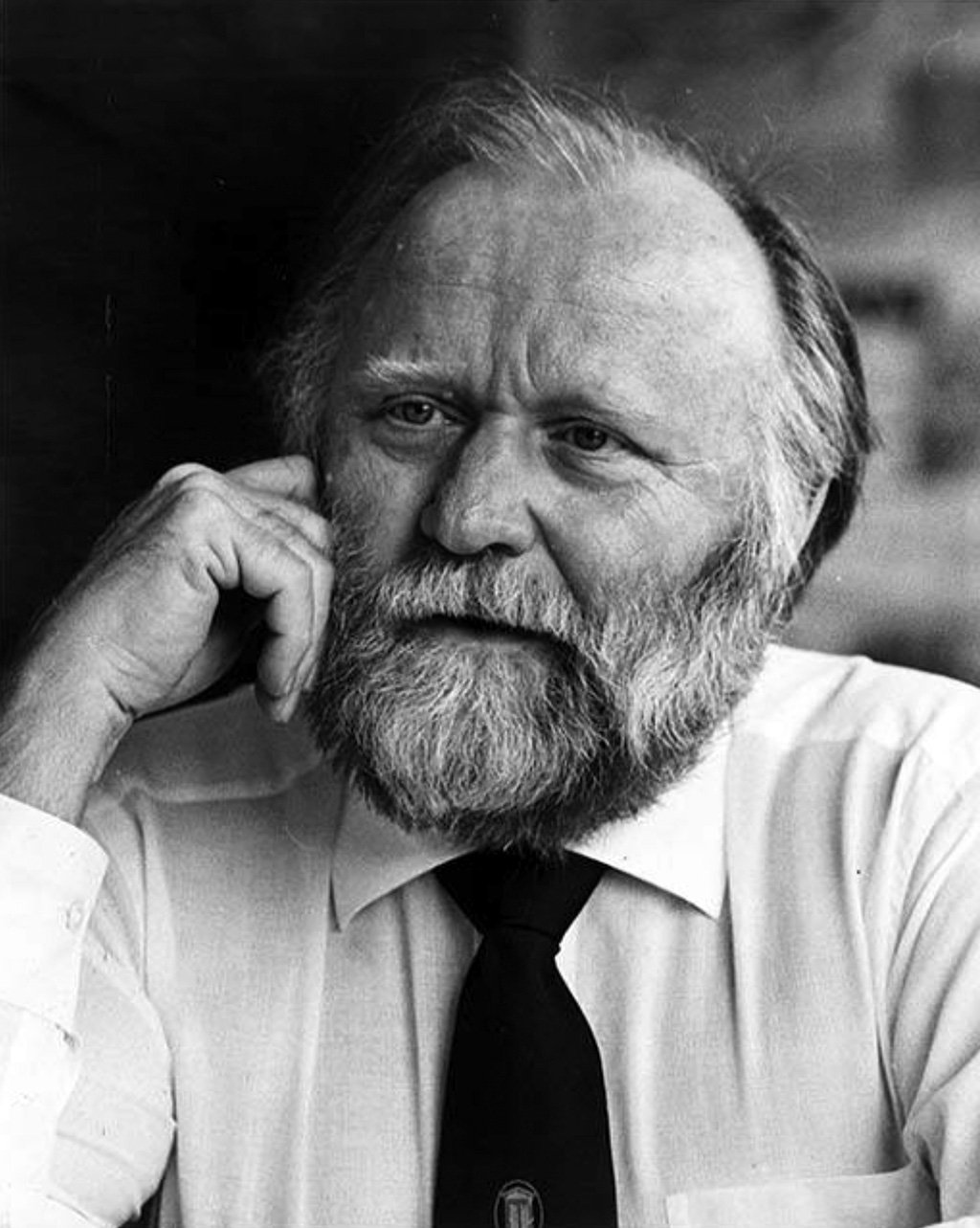Convincing You to Read ‘Dune’ By Frank Herbert
If you have Goodreads and follow Maude Garrett, Amanda Tass, or Amanda Guarragi (me), you know that science fiction is one of their favourite genres! Sometimes sci-fi trumps fantasy and it’s always great to tap into a different genre to get a fresh perspective on life.
Maude Garrett is a huge sci-fi fan and loved Frank Herbert’s Dune. She even read Dune Messiah and Dune Chronicles after the film was released in 2021. I wanted to read Dune before the film and had a wonderful experience in the theatre. And after reading Dune Messiah, I can safely say that I enjoyed that more than Dune.
Frank Herbert’s Dune series is extensive, and it’s a difficult series to get into. Most people read Dune and Dune Messiah because it works as a duology. But, if you want to know more about the characters and the world, Herbert covered all his bases.
Frank Herbert (1920–1986) created the most beloved novel in the annals of science fiction, Dune. He was a man of many facets, of countless passageways that ran through an intricate mind. His magnum opus is a reflection of this, a classic work that stands as one of the most complex, multi-layered novels ever written in any genre. Today the novel is more popular than ever, with new readers continually discovering it and telling their friends to pick up a copy. It has been translated into dozens of languages and has sold almost 20 million copies.
As a child growing up in Washington state, Frank Herbert was curious about everything. He carried around a Boy Scout pack with books in it, and he was always reading. He loved Rover Boys adventures, as well as the stories of H.G. Wells, Jules Verne, and the science fiction of Edgar Rice Burroughs. On his eighth birthday, Frank stood on top of the breakfast table at his family home and announced, ”I wanna be a author.”
OriginAL DUNE SERIES
Synopsis
Set on the desert planet Arrakis, Dune is the story of the boy Paul Atreides, heir to a noble family tasked with ruling a bleak world where the only thing of value is the “spice” melange, a drug capable of extending life and enhancing consciousness. Coveted across the known universe, melange is a prize worth killing for...
When House Atreides is betrayed, the destruction of Paul’s family will set the boy on a journey toward a destiny greater than he could ever have imagined. And as he evolves into the mysterious man known as Muad’Dib, he will bring humankind’s most ancient and unattainable dream to fruition.
Themes in the Dune series
Dune
political power
military power
religious power
economic power
ecological power
Dune Messiah
dangers of religion
mixing religion with government powers
guilt
desire
Children of Dune
power
religion
identity
God Emperor of Dune
sacrifice
destiny versus free will
nature of transformation (physical and spiritual)
future of humanity
Heretics of Dune
change and evolution
adapting to a new world
Chapterhouse: Dune
love
heresy
variation
Bene Gesserit’s motivations
LEGENDS OF DUNE Series
Synopsis
The Butlerian Jihad It began in the Time of Tyrants, when ambitious men and women used high-powered computers to seize control of the heart of the Old Empire including Earth itself. The tyrants translated their brains into mobile mechanical bodies and created a new race, the immortal man-machine hybrids called cymeks. Then the cymeks' world-controlling planetary computers, each known as Omnius, seized control from their overlords and a thousand years of brutal rule by the thinking machines began.
The human race still clings to life. Some, like idealistic Serena Butler of the free planet Salusa Secundus and her betrothed, the soldier Xavier Harkonnen, even dream of overthrowing the machines and freeing their human slaves. Others, like Vorian Atreides, the bastard son of the cymek Agamemnon, are proud to serve the machines. But their world faces disaster. Impatient with human beings' endless disobedience and the cymeks' continual plotting to regain their power, Omnius has decided that it no longer needs them. Only victory can save the human race from extermination.
Themes in the Legends of Dune series
The Butlerian Jihad
feudalism and technology
religion over science
humans over machines and artificial minds
The Machine Crusade
church and empire
artificial intelligence
ethics in science, politics and religion
freedom and slavery
The Battle of Corrin
war
mankind adopting other physical forms
plagues in the galaxy
The Schools of Dune Series
Synopsis
It is eighty-three years after the last of the thinking machines were destroyed in the Battle of Corrin, after Faykan Butler took the name of Corrino and established himself as the first Emperor of a new Imperium. Great changes are brewing that will shape and twist all of humankind.
The war hero Vorian Atreides has turned his back on politics and Salusa Secundus. The descendants of Abulurd Harkonnen Griffen and Valya have sworn vengeance against Vor, blaming him for the downfall of their fortunes. Raquella Berto-Anirul has formed the Bene Gesserit School on the jungle planet Rossak as the first Reverend Mother. The descendants of Aurelius Venport and Norma Cenva have built Venport Holdings, using mutated, spice-saturated Navigators who fly precursors of Heighliners. Gilbertus Albans, the ward of the hated Erasmus, is teaching humans to become Mentats…and hiding an unbelievable secret.
The Butlerian movement, rabidly opposed to all forms of “dangerous technology,” is led by Manford Torondo and his devoted Swordmaster, Anari Idaho. And it is this group, so many decades after the defeat of the thinking machines, which begins to sweep across the known universe in mobs, millions strong, destroying everything in its path.
Every one of these characters, and all of these groups, will become enmeshed in the contest between Reason and Faith. All of them will be forced to choose sides in the inevitable crusade that could destroy humankind forever….
Themes in The Schools of Dune Series
Sisterhood of Dune
Bene Gesserit sisterhood
political corruption
Mentats of Dune
improving the human race
fanaticism
humans taught to think like computers
Navigators of Dune
breeding program
inevitability of destined conflict
Prelude to Dune Series
Since there is so much depth to Herbert’s Dune universe, Brian Herbert and Kevin J. Anderson decided to give more backstory. The Prelude to Dune series explores the centuries worth of politics, power and relationship dynamics in the Emporium. This gave more insight on the operations in the original Dune series and helped many readers understand the political tactics used by certain houses. More importantly, to get into the character’s minds in The Duke of Caladan, The Lady of Caladan, The Heir of Caladan and Paul of Dune allows readers to feel more of a connection to each of them enriching their reading experience for Dune.
Why You Should Pick Up One Of Frank Herbert’s Books
After reading Dune and Dune Messiah ahead of the book adaptation’s release, I finally understood why Herbert’s writing was beloved by many. Even though the novels are dense and rich with political jargon surrounding spice, there is also impressive character development that goes unnoticed until their strength needs to be used. Herbert examines religion and prophecy through a very human story with Paul Atreides. Reading about his journey from an adolescent boy losing his father to becoming his own man because of his duty to his house sounds generic. But Herbert’s love of science fiction allowed Herbert to expand upon the throne of politics with incredible world-building.
Before Star Wars, Herbert’s Dune was considered the greatest sci-fi story. The way Herbert broke down the politics and religion within the world was straightforward. He wanted people to understand the complexities and grey areas in both. No matter when you read Dune, the themes within the series are always relevant because of the questioning of faith and people in power. It may seem like some other novels or films have the same foundation, but Herbert’s work came out before many of them in 1965. Herbert’s characters all go through hardships and Paul Atreides goes through an unexpected transformation unlike any lead character in a sci-fi series.
Which of Frank Herbert’s novels have you read? Let us know in the comments below or join our discord today!
Become a member today to read more books and get access to behind-the-scenes content of ‘Maude’s Book Club’.



























